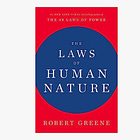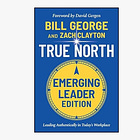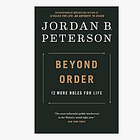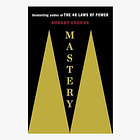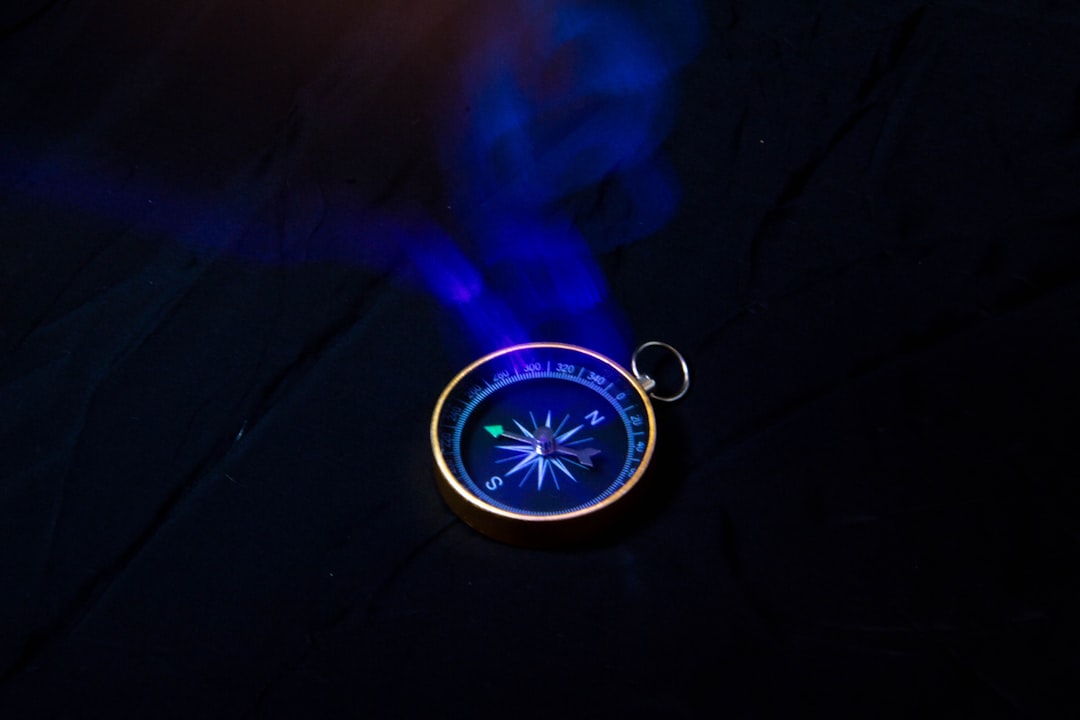
You may wander through various fields and jobs throughout your career to gain experience. At some point, you sense a lack of direction and fulfillment in your work. Although you have developed skills, no unifying theme stitches your work into a unique masterpiece. You may also find yourself chasing the latest fad or seeking the opinions of others to shape your path. Developing a deep sense of purpose that emanates from your values, beliefs, identity, and experiences is the guiding light that shapes your direction. Listening to the voice of your inner guide provides focus and decisions on how you spend your time and energy. Pursuing your unique calling, you overcome challenges with confidence, calmness, and curiosity. Your purpose is personal and powers your destiny.
What is Purpose?
Purpose is what you’re driven to achieve. It’s who you are and what makes you unique. It’s a calling deep inside you that emanates from your identity, vision, beliefs, and values. Purpose is a direction and a stated impact you seek to have on the world.
People with a clear purpose are associated with greater well-being and are less disease-prone. Purpose simplifies and guides our decision-making by aligning our actions with our intentions for impact. Finding your purpose creates energy and a strong direction to learn and overcome obstacles.
Operating with a high sense of purpose is force multiplier. All of your decisions and action have greater power behind them because they are guided by a central idea or purpose. The many sides of your character are channeled into this purpose, giving your more sustained energy. Your focus and your ability to bounce back from adversity give you ineluctable momentum. You can ask more of yourself. And in a world where so many people are meandering, you will spring past them with ease and attract attention for this. People will want to be around you to imbibe your spirit.
The real purpose comes from within. It is an idea, a calling, a sense of mission that we feel personally and intimately connected to. It is our own; we may have been inspired by others, but nobody imposed it upon us and nobody can take it away.
Laws of Human Nature by Robert Greene (Chapter 13 - Advance with a Sense of Purpose)
Why Purpose is Needed in Our Lives
This passage eloquently summarizes the value of embracing a purpose to guide our lives.
By our nature we humans crave a sense of direction. Other living organisms rely upon elaborate instincts to guide and determine their behavior. We have come to depend upon our consciousness. But the human mind is a bottomless pit - it provides us with endless mental spaces to explore. Our imagination can take us anywhere and conjure up anything. At any moment, we could choose to go in a hundred different directions. Without belief systems or conventions in place, we seem to have no obvious compass points to guide our behavior and decisions, and this can be maddening.
Fortunately there is a one way out of this predicament, and it is by nature available to each and every one of us. There is no need to look for gurus or to grow nostalgic for the past and its certainties. A compass and guidance system does exist. It come from looking for and discovering the individual purpose to our lives. It is a path taken by the greatest achievers and contributors to the advancement of human culture, and we only have to see the path to take it.
The Laws of Human Nature by Robert Greene (page 373)
Finding Your Purpose
Finding our unique purpose is difficult and requires deep introspection and exploring what makes us tick. But when we find it and articulate it with words, our mind and spirit open up to what is now possible.
“We have a responsibility to set out to discover what we are made for, to discover life’s work, to discover what we are called to do. And after we discover that, we should set out to do it with all strength and all of the power that we can muster” - Dr. Martin Luther King, Jr.
1. Reflect on your earlier years
What interests did you have as a child before you were shaped by the rigidity of formal education, or what other people influenced you to like?
What subjects or activities did you love spending time on and immersed your curiosity in?
What chose you?
2. Hear the voice of your inner guide
The “voice” is what we hear as an internal critic with self-limiting beliefs or as the inner guide that inspires us to pursue our best selves. The key is choosing the voice we will listen to. Here is another passage from the Laws of Human Nature:
Consider this “life’s work" something that speaks to you from within - a voice. This voice will often warn you when you are getting involved in unnecessary entanglements or when you are about to follow career paths that are unsuited to your character, by the uneasineness that you feel. It directs you toward activities and goals that mesh with your nature. When you are listening to it, you feel like you have greater clarity and wholeness. If you listen closely enough, it will direct toward your particular destiny. It can been seen as something spiritual or something personal, or both.
It is not the voice of your ego, which wants attention and quick gratification, something that further divides you from within. Rather, it absorbs you in your work and what you have to do. It is sometimes hard to hear, as your head is full of the voices of others telling you what you should and should not do. Hearing it involves introspection, effort, and practice. When you follow its guidance, positive things tend to happen. You have the inner strength to do what you must and not be swayed by other people, who have their own agendas. Hearing this voice will connect you to your larger goals and help you avoid detours. It will make you more strategic, focused, and adaptive. Once you hear it and understand your purpose, there will be no going back. Your course has been set, and deviating from it will cause anxiety and pain.
- The Laws of Human Nature by Robert Greene (page 170)
3. Identify life’s crucibles
Our crucibles, the significant challenges of our lives, shape and teach us valuable lessons. We learn that life is not always fair and bad things can happen to good people. We have the choice of crucibles to control lives, leading to fear, anxiety, and unhappiness. A crucible can often be translated into our life’s work to help others. Reframing a crucible with a new meaning can be a transformative experience and shape your purpose and path.
When we learn the wisdom from a crucible, we are prepared to go in a new direction that the world is calling us. - True North by Bill George
Think back to a crucible in your life that involved the greatest pressure, stress, anxiety, or feeling of despair. How may you reframe this significant experience and pain into a purpose that could use this hardship and wisdom to help others?
4. Identify moments that felt natural, easy, and energetic
What moments and activities throughout your life felt natural and easy?
When did you feel a rush of mojo - that positive spirit toward what we are doing now starts from the inside and radiates to the outside?
While practicing your craft, when did you feel energy delivered back to you?
5. Embrace your uniqueness
We are unique based on our DNA, experiences, and gifts. Lean into your peculiarity as a source of differentiation to shape a purpose that lets you be you. Experiment with developing skills and a style related to your personality and interests. The source of competitive advantage in any field is being different, not necessarily better.
6. Journal and adapt your calling
Finding your purpose requires reflection and listening to yourself. Journal to record how you are feeling and what you are thinking about. Review past journal entries to identify themes. Use reflection to reinforce your purpose and adjust your calling to various career stages.
7. Beware of false purposes
We can be lured into taking the easy, cheap, and popular path of our purpose - a false purpose.
The real purpose leads us upward, to a more human level. We improve our skills and sharpen our minds; we realize our potential and contribute to society. False purposes lead downward, to the animal side of our nature - to addictions, loss of mental powers, mindless conformity, and cynicism.
Laws of Human Nature by Robert Greene (page 385)
These ideas from the book are summarized below:
Pure pursuit of pleasure - our need for pleasure may lead to addiction and becoming possessed by the objects we crave and lose ourselves. These distractions will take us away from following our true purpose.
Causes and cults - Allying ourselves with a cause can be an important part of our sense of purpose, as it was for Martin Luther King, Jr. But it must emerge from an internal process to which we have thought deeply about the subject and are committing ourselves to the cause as part of our life’s work. We are not simply a cog in the machinery of such a group but active contributors, bringing our uniqueness into play and not mimicking the company line. We are not joining out of a need to gratify our ego or to vent ugly emotions, but rather out of a hunger for justice and truth that springs from deep with our own sense of purpose.
Money and success - while pursuing a path to make the most money can generate motivation and focus, it can lead to diminishing returns and unhappiness over time. These choices may not directly connect to what we are good at, what we love, and how they tie to our identity. This may lead us to feel restless and find new ways to motivate ourselves. Money and success come from remaining original and not mindlessly following the path that others are following. If we make money our primary goal, we never truly cultivate our uniqueness, and eventually, someone younger and hungrier will supplant us.
The most pleasurable things in life occur as a result of something not directly intended or expected. When we try to manufacture happy moments, they tend to disappoint us. Concentrate on maintaining a high sense of purpose, and success will flow to you naturally.
Attention - As with money and success, we have a greater chance of attracting attention by developing a high sense of purpose and creating work that naturally draws people to it. When the attention is unexpected, as with the success we suddenly have, it is all the more pleasurable.
Cynicism - this is the feeling that there is no purpose or meaning in life, given that reality is brutal and ugly. The response is to move in the opposite direction and see life as sublime, beautiful, and worthy of wonder. Nothing is more awe-inspiring than the human brain - its complexity and untapped potential. We want to realize some of that potential in our lives, not wallow in the cynical slacker attitude. We see a purpose behind everything we experience and see.
Purpose Statement
Follow these techniques to visualize and craft a compelling purpose statement.
Visualizing Your Purpose
Turn your attention to your inner guide - that voice of self-affirming beliefs that knows and wants the best for you - your true north and purpose.
What does your inner guide tell you?
How may you embrace or resist what your inner guide tells you?
Imagine a time machine transporting you 5-10 years into the future.
Where are you?
What are you doing or working on?
What are the attributes of this person?
What does your future self want you to tell you today?
Steps to Write a Purpose Statement
Follow these steps to craft a purpose statement that aligns with your values, beliefs, vision, identity, and aspirations:
Reflect on your values: Start by considering what truly matters to you. Reflect on your core values and principles. What do you believe in? What principles guide your decisions and actions? Identifying your values will provide a strong foundation for your purpose statement.
Identify your passions: Think about the activities and areas of interest that bring you the most joy and fulfillment. What are you naturally drawn to? What activities make you lose track of time? Identifying your passions will help you align your purpose statement with what you truly enjoy.
Define your strengths: Take inventory of your unique talents, skills, and strengths. What are you good at? What do others consistently recognize as your areas of expertise? Understanding your strengths will enable you to leverage them to pursue your purpose.
Envision your ideal future: Imagine yourself in the future, living a life that reflects your deepest desires and aspirations. What does that life look like? How do you want to make a difference in the world? Envisioning your ideal future will provide clarity and direction for your purpose statement.
Write a draft: Based on the insights gained from the previous steps, write a draft of your purpose statement. It should be concise, powerful, and capture the essence of who you are and what you want to achieve. Use affirmative language and avoid vague or generic statements.
Refine and clarify: Review your draft purpose statement and refine it further. Ensure that it aligns with your values, passions, strengths, and vision for the future. Remove any unnecessary or ambiguous wording. Make sure it conveys a clear message that resonates with you deeply.
Make it compelling: Your purpose statement should inspire and motivate you. Add emotional power to your statement by using vivid language and imagery. It should evoke a strong sense of purpose and ignite a desire to take action toward fulfilling it.
Make it ambitious: Aim high with your purpose statement. Don't be afraid to set ambitious goals and envision a grander impact. Your purpose should challenge and stretch you, pushing you to grow and achieve beyond your current capabilities.
Seek feedback: Share your purpose statement with trusted friends, mentors, or coaches. Seek their feedback and perspective. Their insights can help refine your purpose statement and ensure it resonates with others.
Revise and finalize: Incorporate the feedback you received and revise your purpose statement as needed. Take the time to ensure it reflects your authentic self and captures the essence of your aspirations. Once you are satisfied, consider it final.
Example Purpose Statement
Create a purpose statement that includes one or more metaphors of who you are being (aspects of your new identity) and the impact you want to have.
Purpose Statement
I am the (metaphors of who you are being)….
…. that (the impact you want to have)
Here is an example of my purpose statement:
I am the:
alarm clock that wakes people up
flashlight that shines the light on consciousness and awareness
knowledge beacon that guides others in darkness
time machine transporting people into the future faster
that together inspire millions of people to pursue and experience their true potential now.
Using Purpose as a Catalyst for Change
Embracing and practicing our purpose daily can be the catalyst for transformational change in our lives. Clarity simplifies decision-making and reduces randomization, which is usually present in daily life.
If you work as hard as your can on one thing, you will change. You will start to also become one thing, instead of the clamoring multitude you once were. That one thing, developed properly, is not only the disciplined entity formed by sacrifice, commitment and concentration. It is that which creates, destroys, and transforms discipline itself - civilization itself - by expressing its unity of personality and society. It is the very Word of thruth, upon whose function all habitable order, wrenched out of chaos, eternally depends. Work as hard as you possibly can on at least one thing and see what happens.
Translate Purpose into Action
Living our purpose requires focus and allocation of our time and energy. Purpose is generally a life-long pursuit where we set aspirational goals that may take years to realize. These are strategies and techniques to put your purpose into action:
Practice daily habits that exemplify and reinforce your purpose. See your purpose as a muscle that must be exercised every day. Practicing your purpose daily will bring confidence, evidence, and credibility to the value proposition of your purpose.
Allocate uninterrupted “deep work” time for as many hours daily as possible. Silence your phone to eliminate distractions. Organize your workspace to be clean and tidy.
Focus on the work's process and its value, not on seeking external praise from others. People must see your work as authentic and emanating from your purpose, not for selfish reasons such as money or fame.
Sense the activities and tasks where you experience mojo. These are signals of your purpose, unlike other feelings.
Create a ladder of descending goals that links long-term aspiration goals to daily tasks. Ambitious goals will provide clarity, excitement, and the underlying whys to motivate us. Realizing those goals will require daily compound interest deposits to grow the reality and impact of our efforts.
Actions
1. Find the signs of your purpose.
Tune out your inner critic.
Meditate on the messages and reminders from the “voice” - the inner guide.
Make space to hear your inner guide - journal, disconnect, and take walks.
Think back to your interests and passions earlier in life.
Translate crucibles into a path of purpose to help others.
Take note of your mojo moments.
Love yourself by embracing your uniqueness.
Contribute to something larger than yourself.
Stay true to yourself, and don’t be lured by false purposes.
2. Craft a purpose statement that is uniquely you.
Craft a purpose statement to encapsulate what drives you and what makes you unique in a crowded world.
Speak your purpose statement daily to remind yourself of your path.
Share your purpose with the world - it’s waiting for you.
3. Translate purpose into weekly/daily goals and calendar time.
Document goals for the upcoming week each Sunday that align with your purpose.
Identify daily micro-goals to build momentum and achievement toward weekly goals.
Add events to your calendar for each goal - color code those events that align with your purpose.
Conduct a weekly review each Sunday to inspect your achievement against your goals and use learnings for the upcoming week.
Resources
Articles
From Purpose to Impact (HBR.org)
Finding Success Starts with Finding Your Purpose by John Coleman (HBR.org)
Books
Chapter 13 – Advance with a Sense of Purpose
Rule VII - Work as Hard as You Possibly Can On At Least One Thing and See What Happens
Videos
Published: December 4, 2023



